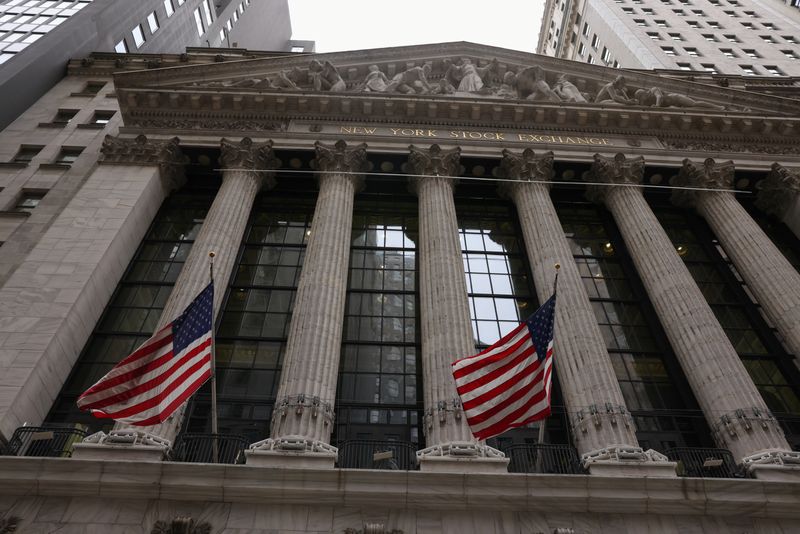(Reuters) - A look at the day ahead in U.S. and global markets by Alun John.
How U.S. consumers are feeling is the question for today, though it could be one of those relatively rare occasions when it's developments in Europe and Asia that are driving the macro picture.
The University of Michigan's consumer sentiment survey is due and last month's reading was at a six-month low.
It will be interesting to see whether last month's cooler inflation has had much of an effect, though it is likely to be too soon for people to have noticed, and the data is quite choppy anyway.
Still, it'll be a helpful read on the state of the U.S. consumer - which has provided the non-AI leg of equities' recent strong performance - and could also come with a second-order effect for markets as people speculate about what it can tell us about the mood ahead of November's presidential election.
The election that has got markets talking this week, however, is the one for the French legislature called by President Emmanuel Macron after a bruising loss in the weekend's European Parliament vote to Marine Le Pen's far-right National Rally.
The RN is leading the polls for the first round of parliamentary voting on June 30, and, further complicating the picture, political parties representing the French left-wing said Thursday they had reached an agreement to form a 'Popular Front'.
This has left Macron's camp struggling to make headway, and is spooking markets.
French stocks are down 4.5% for the week, at the time of writing, on track for their biggest weekly drop since September 2022, with banks particularly hard hit. The spread between French and German bond yields - the extra yield investors want in exchange for taking on more risk - has widened by 27 basis points this week, and is at its widest since 2017.
Not adding reassurance, Finance Minister Bruno Le Maire when asked on franceinfo radio on Friday whether the current political situation in the country could lead to a financial crisis, said 'yes'.
Also on Friday, the Bank of Japan said it would start trimming its huge bond purchases, and announce a detailed plan next month on reducing its nearly $5 trillion balance sheet.
While this is another step toward unwinding its massive monetary stimulus, markets had expected the central bank to move this month, and this surprise sent the yen weaker.
The dollar reached as high as 158.25 yen, its highest since late April when Japanese authorities stepped into markets to prop up their currency.
Also in Asia, investors are watching China's central bank, which faces a looming test of its resolve to curb the financial stability risks it sees in a rallying bond market.
Key developments that should provide more direction to U.S. markets later on Friday:
* Fed Reserve Bank of Chicago President Austan Goolsbee speaks

* Uni of Michigan June survey
* US import/export prices